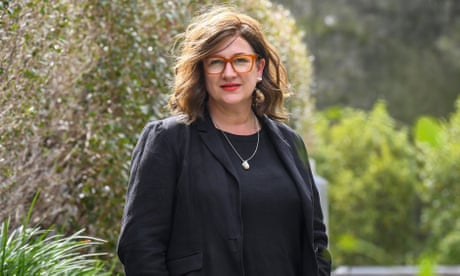- by foxnews
- 08 Apr 2025
GPs ask for all contraceptives to be subsidised and end to abortion ‘postcode lottery’
GPs ask for all contraceptives to be subsidised and end to abortion ‘postcode lottery’
- by theguardian
- 22 Dec 2022
- in news

All contraceptives should be government subsidised, Medicare rebates for IUD insertion should be increased and larger quantities of contraception pills should be dispensed at once to make abortion and contraception more accessible, the peak body for general practitioners says.
In its submission to the Senate inquiry into universal access to reproductive healthcare, the Royal Australian College of General Practitioners said there were significant barriers to reproductive care, particularly in rural and remote communities.
The president of the RACGP, Dr Nicole Higgins, works as a regional GP and said cost was a key barrier to abortion services and the government could do a lot to improve affordability.
"In Mackay, where I am, if a woman presents for an abortion later than nine weeks or has a failed medical termination they have to go to Brisbane which is 1000km away, at a cost of $650 plus flights and accommodation," she said.
There were also barriers for rural GPs who want to provide these services, she said, including hospitals being too far away, the unavailability of a gynaecologist to provide backup and difficulty accessing drugs.
The RACGP wants medication for medical termination to be added to the "prescribers bag", where drugs are provided to GPs under the pharmaceutical benefits scheme without charge, for use by patients in emergencies.
"We also need to do more to improve access to and affordability of the full range of contraceptive options," Higgins said. "Firstly, allowing greater quantities of contraceptive pills to be dispensed in one go will make a huge difference for those who need it.
"Many newer forms of contraceptives such as the new progesterone-only pill and vaginal ring are not listed on the PBS, meaning only those who can afford to pay for a private prescription can access them and it's out of reach for most."
But the RACGP opposes programs in some states which allow pharmacists to prescribe repeat scripts for the hormonal contraception pill, despite Canada, New Zealand and the UK having similar programs and despite evidence that it removes barriers to access and prevents unplanned pregnancies.
The RACGP wants IUD insertion to be made more affordable, and financial support for GPs to train in surgical abortion and long-acting reversible contraception procedures. The RACGP submission also calls for nationally consistent legislation for medical and surgical termination. Western Australia, for example, is the only state yet to fully decriminalise abortion performed by qualified practitioners.
A Monash University-led study published on Friday in the Australian Journal of Primary Health found abortion services and advice is limited, even in areas where public hospitals provide abortion services.
Led by a GP registrar, Dr Sonia Srinivasan, the study found there was inadequate information to support GPs in referring women to abortion services and that most public services direct referrers towards private providers. The study also found there is little transparency surrounding whether abortion services will be provided and under what circumstances, especially in rural and regional areas.
Srinivasan said she would like to see the Senate inquiry consider how to collect national data on abortion.
"We still don't have that good national data, unlike other countries," she said. "We have little information about how many abortions are done throughout the country, whether they're done in the private or the public sector, and what the out-of-pocket cost is for women."
There also needs to be standardised national guidelines around abortion care and referral pathways, Srinivasan said.
"What we want is for access to abortion not to be a postcode lottery that depends on where you live," she said. "Wherever a woman needs an abortion in the setting of an unplanned pregnancy, she should know she'll receive accessible, timely, affordable, and appropriate care and standardised guidelines are essential to that."
- by foxnews
- descember 09, 2016
Ancient settlement reveals remains of 1,800-year-old dog, baffling experts: 'Preserved quite well'
Archaeologists have recently unearthed the remarkably well-preserved remains of a dog from ancient Rome, shedding light on the widespread practice of ritual sacrifice in antiquity.
read more


